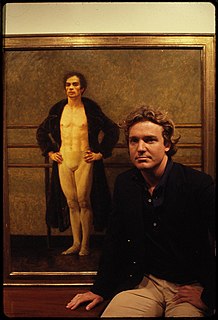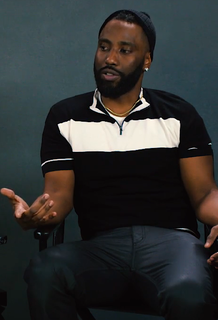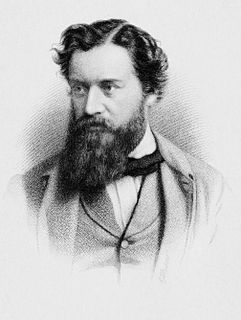A Quote by Marilynne Robinson
When I read 'Paradise Lost,' or 'Richard III,' it is clear that Milton and Shakespeare took real pleasure and satisfaction from creating these epitomes of evil.
Quote Topics
Related Quotes
I went to a Jesuit school and they did a William Shakespeare play every year. I got to know Shakespeare as parts I wanted to play. I missed out on playing Ophelia - it was an all-boys school. The younger boys used to play the girls, I played Lady Anne in Richard III and Lady Macbeth, then Richard II and Malvolio. I just became a complete Shakespeare nut, really.
If you like poetry let it be first rate, Milton, Shakespeare, Thomson, Goldsmith Pope (if you will though I don't admire him), Scott, Byron, Campbell, Wordsworth and Southey. Now Ellen don't be startled at the names of Shakespeare, and Byron. Both these were great Men and their works are like themselves, You will know how to chuse the good and avoid the evil, the finestpassages are always the purest, the bad are invariably revolting you will never wish to read them over twice.
A couple of clues came my way of what I might be getting myself into when I sat down with a number of actors who had played Richard III in the past. And I was hoping of course, that one of them or all of them were gonna give me the magic key, the secret way in to play Richard III but none of them did that.But every one of them did say the following, "Be careful."
They took away what should have been my eyes (but I remembered Milton's Paradise). They took away what should have been my ears, (Beethoven came and wiped away my tears) They took away what should have been my tongue, (but I had talked with god when I was young) He would not let them take away my soul, possessing that I still possess the whole.
The thing that is always so surprising about plays written in another century is how remarkably elastic they are. When you listen to the way in which Shakespeare attacks relationships, for example, even though the words may start off sounding foreign, in actuality they are so accessible, the motivations so clear, the resonances so contemporary. When you put it in a modern context - we could well be in a place with someone like Gaddafi or Mubarak - it becomes apparent how Richard III resonates with that type of personality, with media and manipulation, alliances and petty jealousies.
I think I hoped for something more. Maybe I even hoped that I could find in Richard what I had with Ben. But it is suddenly very clear: Richard is not fallin in love with me and I'm not falling in love with Richard. We are not creating anything permanent or special. We are only having fun together. It is a fling- a fling just like he said last night- a fling with an ending yet to be determined. I feel relieved to have it defined





































